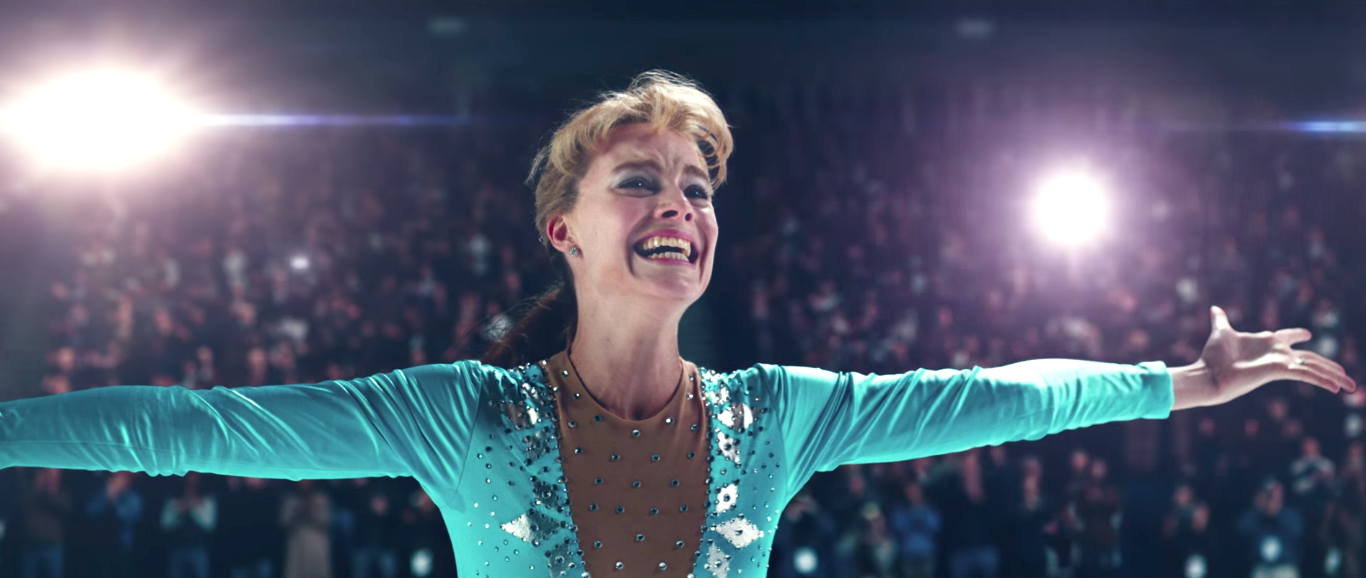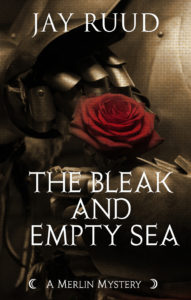I, Tonya
Craig Gillespie (2017)
[av_image src=’http://jayruud.com/wp-content/uploads/2014/12/3-12.jpg’ attachment=313′ attachment_size=’square’ align=’left’ animation=’left-to-right’ link=” target=” styling=” caption=’yes’ font_size=” appearance=’on-hover’]
Three Tennysons/Half Shakespeare[/av_image]
[av_textblock size=” font_color=” color=”]
Just in time for the winter Olympics, Craig Gillespie (Lars and the Real Girl) revisits the big story of the 1994 Olympics in Lillehammer: the worldwide scandal featuring American figure skaters Tonya Harding and Nancy Kerrigan. If you were alive and in any sense conscious in 1994, you will remember how Harding was implicated in a crude attack on Kerrigan that broke her kneecap at the U.S. Figure Skating Championships seven weeks before the Olympics and became, by virtue of that incident, the best-known and most hated woman on the planet.
The timing is also fortuitous in another way: During this Oscar season, I, Tonya is being shown in theaters (not many, as it turns out, in central Arkansas—you can only see this at Breckinridge) at the same time as another highly publicized film, The Post, which revisits another significant moment in recent history, the publication of the Pentagon Papers. Whereas The Post demonstrates the best that journalism can accomplish—the necessary role of a free press in keeping the government accountable to the people, I, Tonya portrays the opposite—the pressure of the 24-hour news cycle, just coming into its own in 1994, to over-report and oversimplify stories, to craft them into the kind of hero-villain fictions that entertain audiences, and thereby to irresponsibly try cases in the media.
Certainly Harding was no saint and the film does nothing to imply that that is the case. But in its complex depiction of the actual human being (from several points of view), and in the vigorous, athletic, and brash portrayal of her by Margot Robbie (The Wolf of Wall Street), we are introduced to a Harding that gains our grudging sympathy even as her life appalls and horrifies us.
This is more or less a biopic, though it is occasionally fictionalized, and it is structured around documentary style interviews (recreated from the ESPN documentary The Price of Gold from 2014, as well as some more recent interviews conducted with the principals by screenwriter Steven Rogers). The story is told by Harding, her vile, bullying and outspoken foul-mouthed mother (played with delicious obnoxiousness by Allison Janney), her dim-witted and abusive ex-husband Jeff Gillooly (Sebastian Stan of Logan Lucky and the Captain America movies), and her deluded, self-aggrandizing bungler of a bodyguard, Gillooly’s friend Shawn Eckhardt (Paul Walter Hauser of TV’s Kingdom), and thus it follows a nonlinear narrative that is only generally chronological. The characters comment on the action as we witness it, through interviews, voiceover, and occasionally through the breaking of the fourth wall by directly addressing the audience, as when Harding, chasing Gillooly out of the house with a shotgun, turns to the camera and says, “I never did this.” The multiple perspectives combine with the occasional fictional elements to create a story that makes it difficult to know precisely what actually happened. What we can be fairly certain of, however, is that, surrounded by knaves and fools as she was her entire life, it would have been a miracle if Harding’s life had not turned out to be a disaster.
The story begins in Tonya’s childhood, when her mother, chain-smoking at an ice rink, effectively forces Tonya’s first coach, Diane Rawlinson (Julianne Nicholson of TV’s The Red Road and Masters of Sex) to take the 3-year-old into her figure skating class. We witness the young Tonya, abandoned by her father and consistently abused both physically and emotionally by her mother—who refuses to allow her daughter to take a bathroom break from skating practice, forcing her to urinate on the ice, ultimately leave school at 15 to devote herself full-time to skating. She predictably leaves home to be with Gillooly, the first male to pay any attention to her, only, inevitably, to suffer more physical abuse from him.
Embattled at home, we see Harding at the same time fighting a disgusting form of class discrimination on the ice. The insidious snobbery becomes clear as we see Harding on the sidelines fuming at her scores, then charging the judges’ table demanding to know why, when she had clearly demonstrated an athleticism superior to the other skaters, the judges failed to give her the marks she was sure she deserved. When the female judge tells her condescendingly that there were flaws in her “presentation”—the go-to excuse in a totally subjective sport for a judge to give any sort of score in a whim—Harding tells her in a rage to “suck my dick” (something that actually did not happen, though the rumor is that when Harding saw the film herself, she said she wished she had said it). In a later scene, a somewhat more in-control Harding accosts a male judge in a parking lot after a competition and asks why she cannot get a fair score, he honestly tells her that, with her homemade costumes and her working-class background and tumultuous family life, she simply does not project the image of the idealized princess that the world of figure skating wants to embrace for the Olympic games: “You’re representing America, for Christ’s sake.” There is a heart-rending simplicity in Tonya’s response: “But why can’t it just be about the skating?”
The answer, of course, as the film makes clear, is that it was never just about the skating. If it were, Harding would have been far more respected than she was. The reason for this is her unprecedented performance in the 1991 Skate America competition. To understand this, you have to understand some of the technicalities of figure skating. First, the “axel” jump (named after the Norwegian skater Axel Paulsen, who was the first to perform the jump in 1882) is a jump that required a forward takeoff with an extra half a rotation, performed by a skater who takes off from the left forward outside edge and lands on the right back outside edge after a rotation. A double axel (not performed in competition until 1948) required two and a half rotations before landing, and a triple axel three and a half. Before 1991, no American woman had ever performed a triple axel in competition, and Tonya Harding did it twice during that 1991 Skate America. Only eight women in history have ever performed this jump in competition, and until 2017 Harding had remained the only American woman ever to do it. When this triumphant moment occurs during the film, Robbie-as-Tonya during the faux interview tears up, and says “nobody ever asks me about that anymore.”
When the film does get to this point it sets the stage for what everyone involved refers to as “the incident.” Harding is put on a collision course with her chief competitor in American women’s skating, Nancy Kerrigan, the embodiment of wholesome and privileged social in-group the judges are looking for to represent America. As competition becomes keener, Harding receives a death threat (yes, this is one of the verifiably true parts of the plot), and in retaliation, Gillooly decides they should send a similar threat to Kerrigan, which a distracted Harding apparently consents to, and Gillooly makes the monumental mistake of turning the project over to the inept and delusional Eckhardt What begins as a kind of retaliatory prank turns into a “hit,” for which Eckhardt hires two comically bungling thugs who manage to cripple Kerrigan with a retractable police baton, breaking her kneecap after a practice session in Detroit.
What follows most of you will remember, but I won’t talk about it in case some of it falls into the “spoiler” category. But the media explosion is well documented, as tabloids and new “news” channels leaped on the story, since it gave them the sympathetic princess in Kerrigan and the obviously guilty white-trash villain in Harding, who goes, as she says, from being the most admired woman in America to being the most hated, to ultimately being a punch line—an arc punctuated in the film by David Letterman’s “Top 10 Things Tonya Harding said to Connie Chung…” that plays in the background as Tonya eats a TV dinner alone. The ultimate question of Tonya’s guilt is never absolutely clear, since we can’t necessarily believe what she says—or, for that matter, what anybody in the film says. This is a darkly comic movie in which the characters are so bizarre they cross over into comedy, but it’s a laughter in the face of darkness, since it distances us from child abuse, spousal abuse, class bias, and criminal assault. Perhaps that distance allows us to see things more clearly.
The film contains memorable performance by Robbie and Janney, both of whom are deserving of their Oscar nominations announced last week. Janney already has a Golden Globe for her work. These portrayals of mother and daughter, and the effective retelling of a story we only thought we knew, are enough to make this film one of the year’s must-see pictures. Three Tennysons and half a Shakespeare for this one.
NOW AVAILABLE:
If you like these reviews, you might enjoy Jay Ruud’s most recent novel, now available from the publisher at https://encirclepub.com/product/the-bleak-and-empty-sea/. Also available from Amazon or Barnes and Noble.
When word comes to Camelot that Sir Tristram has died in Brittany of wounds suffered in a skirmish, and that his longtime mistress, La Belle Isolde, Queen of Cornwall, has subsequently died herself of a broken heart, Queen Guinevere and her trusted lady Rosemounde immediately suspect that there is more to the story of the lovers’ deaths than they are being told. It is up to Merlin and his faithful assistant, Gildas of Cornwall, to find the truth behind the myths and half-truths surrounding these untimely deaths. By the time they are finally able to uncover the truth, Gildas and Merlin have lost one companion and are in danger of losing their own lives.
Buy Cheap Tramadol Overnight Order from Amazon here: https://www.amazon.com/Bleak-Empty-Sea-Tristram-Mystery/dp/1893035735/ref=sr_1_1?s=books&ie=UTF8&qid=1503328086&sr=1-1&keywords=Bleak+and+Empty+Sea
https://oleoalmanzora.com/oleoturismo-en-pulpi/ Order from Barnes and Noble here: https://www.barnesandnoble.com/w/the-bleak-and-empty-sea-jay-ruud/1126958139?ean=9781893035737


